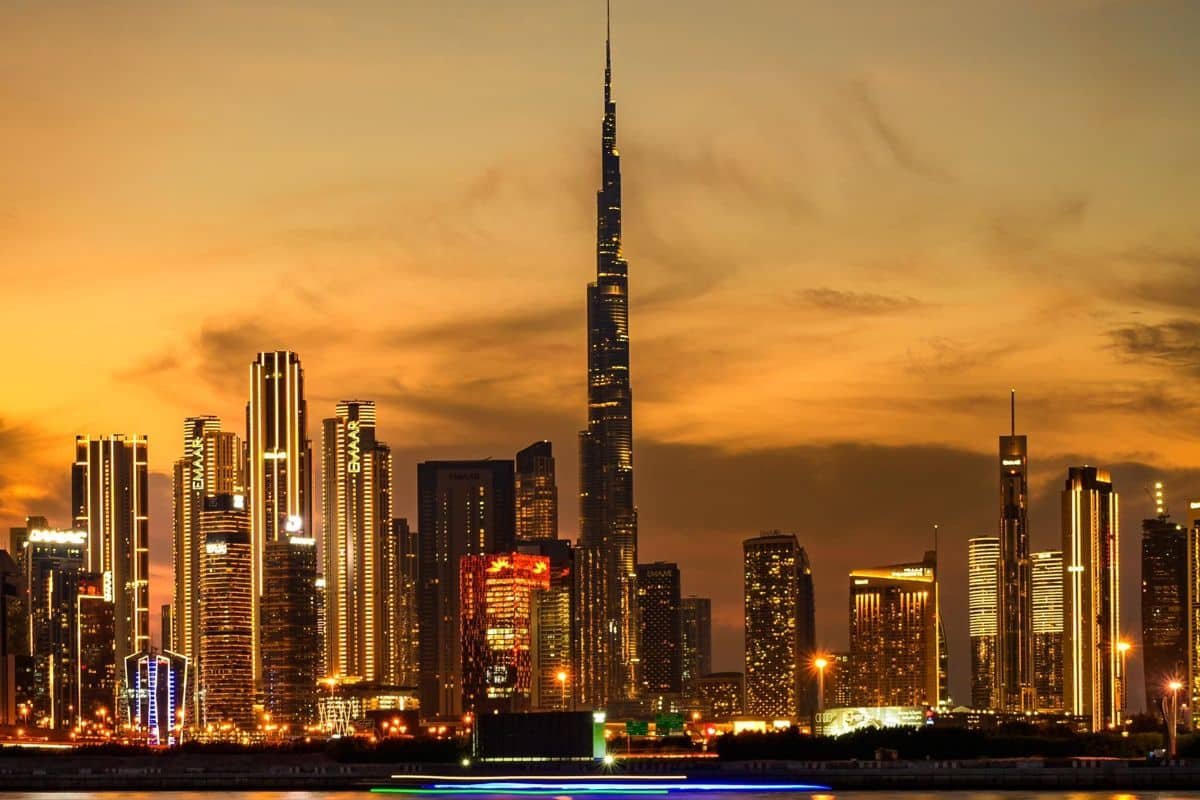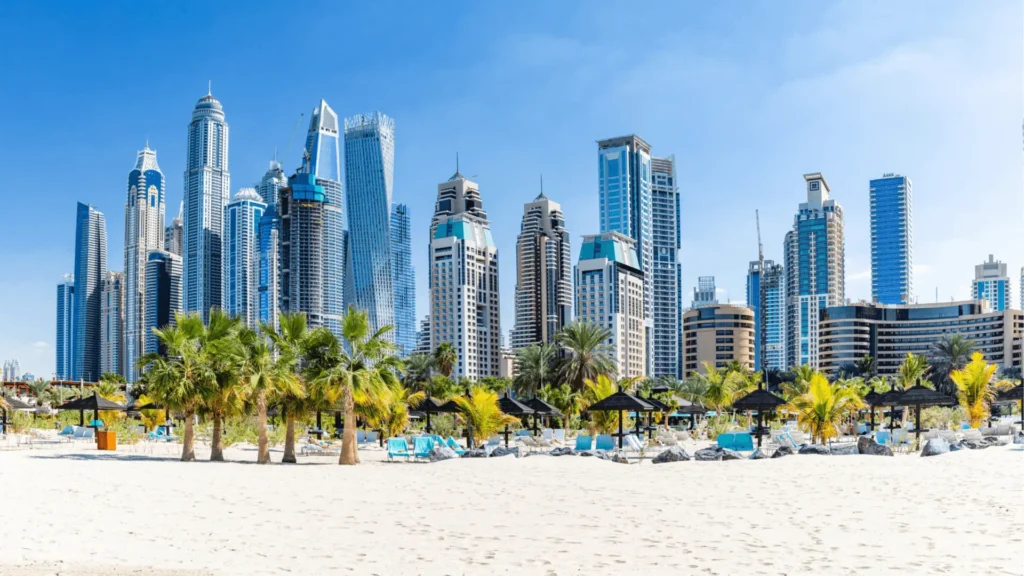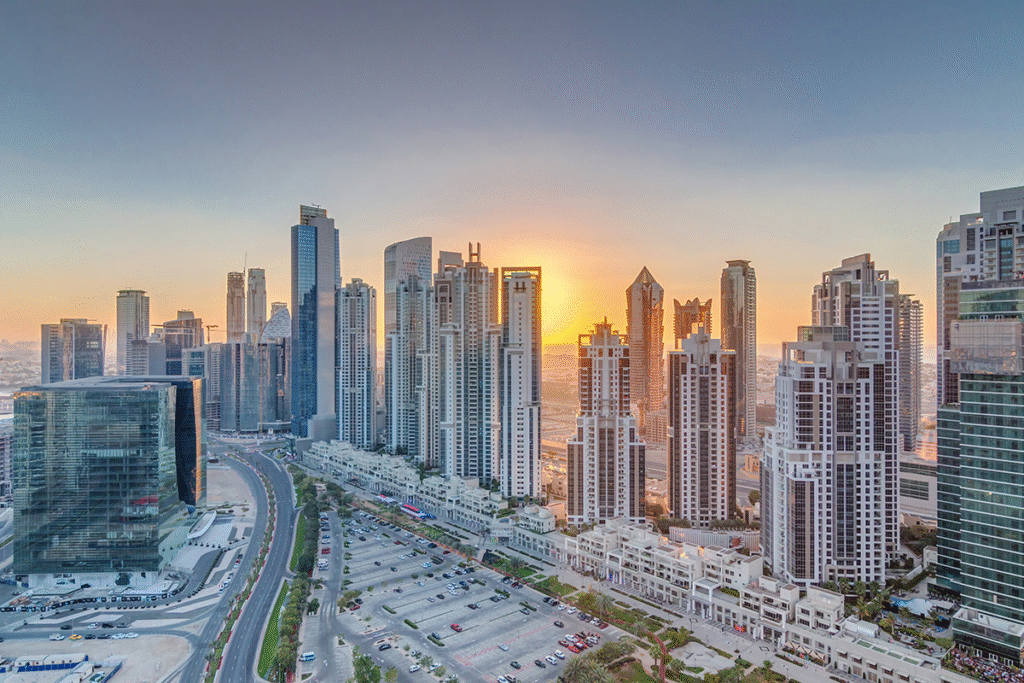
Dubai real estate transactions have reached an extraordinary milestone, recording $4 billion worth of deals in just one week. This impressive figure showcases the continuing strength and momentum of the emirate’s property market, reflecting investor confidence and the growing global appeal of Dubai as a real estate hub. Among these transactions, one ultra-luxury apartment sold for a remarkable $42 million, highlighting the enduring appetite for premium properties.
This surge represents not just numerical success but also Dubai’s ability to attract high-value investors from around the world. Whether residential, commercial, or off-plan projects, the city continues to thrive as a magnet for real estate activity.
The $4 billion tally was composed of various categories of deals: residential sales, off-plan unit purchases, mortgage financing and gift transactions. A few of the key structural elements that supported this uptick include:
A significant portion of the volume came from outright sales of property. A strong number of buyers—both domestic and foreign—took advantage of favourable conditions, driving the bulk of conversions rather than purely speculative or staged deals.
The presence of an ultra-luxury unit sale at $42 million further illustrates that the high-end segment remains vibrant and capable of commanding headline-grabbing sums.
Beyond pure sales, the financing side of things played its role. With mortgage deals flowing, the effective purchasing power expands: when buyers have access to leverage the purchasing capacity, activity tends to accelerate. This acts as a catalyst rather than just a consequence.
Also, gift transactions (where property is transferred via gifting rather than sale) contributed to the tally—reflecting a dimension of family wealth-planning and investor strategy that complements traditional sales.
A single high-value apartment sale (at around $42 million) sets a tone. Big ticket deals attract attention, build confidence among investors, and often trigger further interest across other price-points. When ultra‐luxury properties transact at record sums, it signals to the market that the upper end remains robust and credible.
This also reassures mid‐market buyers that the asset class is not just about volume but also value appreciation potential.
When a major real estate market registers strong transaction volumes in a short period, confidence among both local and international investors gets a lift. For Dubai, this helps reinforce its reputation as not just a tourism or business hub, but a serious property investment destination.
Confidence fuels momentum: more listing, more offers, more completed deals—a virtuous cycle.
High transaction volumes in a short window mean the market has liquidity and depth. For sellers, this means good chances of finding buyers; for buyers, it means more options and potential negotiating power.
A market with depth is less prone to sharp volatility (though no market is immune) and attracts institutional and high‐net‐worth players who demand credible exit opportunities.
Such a week of strong activity helps the market establish or reaffirm benchmark values—especially in luxury segments. When a $42 million apartment sells, it becomes a reference point for comparative valuations in the vicinity or in similar projects.
Better benchmarking means less uncertainty, which often lowers perceived risk and thus can improve financing terms, down‐payment flexibility, and the appeal of property assets.
Real estate often acts as a barometer for broader economic sentiment. Dubai’s ability to record this level of transactions suggests that the emirate is attracting investment, people, and long‐term commitments—factors beyond mere speculation. It points to the strength of tourism, business relocation, residency programmes and infrastructure growth.

The headline $42 million sale confirms that ultra‐luxury apartments remain a key driver. These units typically draw global buyers seeking trophy assets, long‐term capital appreciation and lifestyle prestige.
Such sales are often located in Dubai’s best locations—iconic towers, waterfront or skyline views, best amenities—which further enhance their investment appeal.
While ultra‐luxury grabs headlines, the underlying growth is often rooted in more mainstream residential segments—mid-high homes, off‐plan units, expatriate purchases, and investment units targeted at rental income. These tiers tend to form the bulk of the transactions and provide the “bread and butter” underpinning of the market.
Rising volume across these segments helps the market stay resilient even when one tier (e.g., luxury) sees fluctuations.
Off-plan properties—those purchased prior to completion—are still a key part of Dubai’s real estate landscape. Buyers are attracted by flexible payment plans, modern amenities and upcoming communities. Developers in Dubai have responded with large master-planned communities, mixed‐use towers and lifestyle‐focused residential neighbourhoods.
This development pipeline means that the market isn’t just looking backward at existing stock—it is forward‐looking and dynamic.
While the recent week‐long surge is positive, a few caveats are worth bearing in mind for anyone considering entering or advising on the market:
A strong pipeline of new properties means potential pressure on pricing if demand does not keep pace. Large volumes of new units delivered in short order can lead to higher vacancy rates or downward pressure on pricing.
While current momentum is positive, the “what comes next” question is important.
Dubai’s real estate market is connected to global capital flows, interest rates, currency movements and regional geopolitical factors. A sudden shift in any of those can impact appetite and valuations.
Investors must remain aware of macro factors beyond just local supply and demand.
The emirate has introduced a range of regulatory, residency and visa reforms designed to boost property investment and foreign participation. Ongoing changes (positive or otherwise) can impact market dynamics.
Also, while the recent week is exceptional, long-term durability will depend on fundamentals—population growth, job creation, infrastructure, and livability.
For potential homebuyers or investors, now may be a good time to act: strong transaction levels suggest a healthy market, more options, and good visibility. However, buyers should still conduct due diligence—looking at developer credentials, payment plans, exit options, rental yield potential and local amenities.
In the luxury arena, a trophy apartment purchase may offer both lifestyle and investment upside. In the mid-market, opportunities abound too—especially if one captures a favourable payment plan or early‐stage off-plan unit.
Sellers benefit in a rising volume market: more buyers, more competitive offers, better positioning. It’s an opportune moment to list, especially with the strong recent headline. But sellers must also ensure quality—unsightly properties, deferred maintenance or awkward locations will stand out in a vibrant market.
Speed counts too: timing the listing when market momentum is favourable maximises leverage.
Investors looking for rental income or capital appreciation should pay attention to broader metrics—location, rental demand, community amenities, transport links and upcoming infrastructure. Dubai’s global branding helps, but local realities matter.
Also: diversification across segments (luxury vs mid-market) and readiness for possible short-term corrections is prudent.

If this week is any indicator, we may be seeing a sustained phase of growth in Dubai’s real-estate sector rather than a one-off spike. With the interplay of luxury demand, international capital flows, robust residential segment activity and strong infrastructure growth, the foundations seem favourable.
Nonetheless, long-term success will depend on maintaining balance: demand must keep pace with supply, rental yields should remain attractive, infrastructure must continue to host residents and workers comfortably, and developers must deliver to timetable and quality.
For Dubai, the challenge will be to turn short-term transaction surges into lasting value creation—for property owners, tenants, and investors alike.
The USD 4 billion week in Dubai real estate isn’t just a headline—it’s a statement. It shows a market alive with opportunity, backed by global interest, strong local fundamentals and high‐end confidence. Whether you’re buying, selling or simply watching, this moment matters. For those ready to engage, it may well be a time worth exploring.
Do Follow Estate Magazine on Instagram
Read Next – Ajman Downtown Residents 2025: Horizon Tower D Brings Modern Luxury
